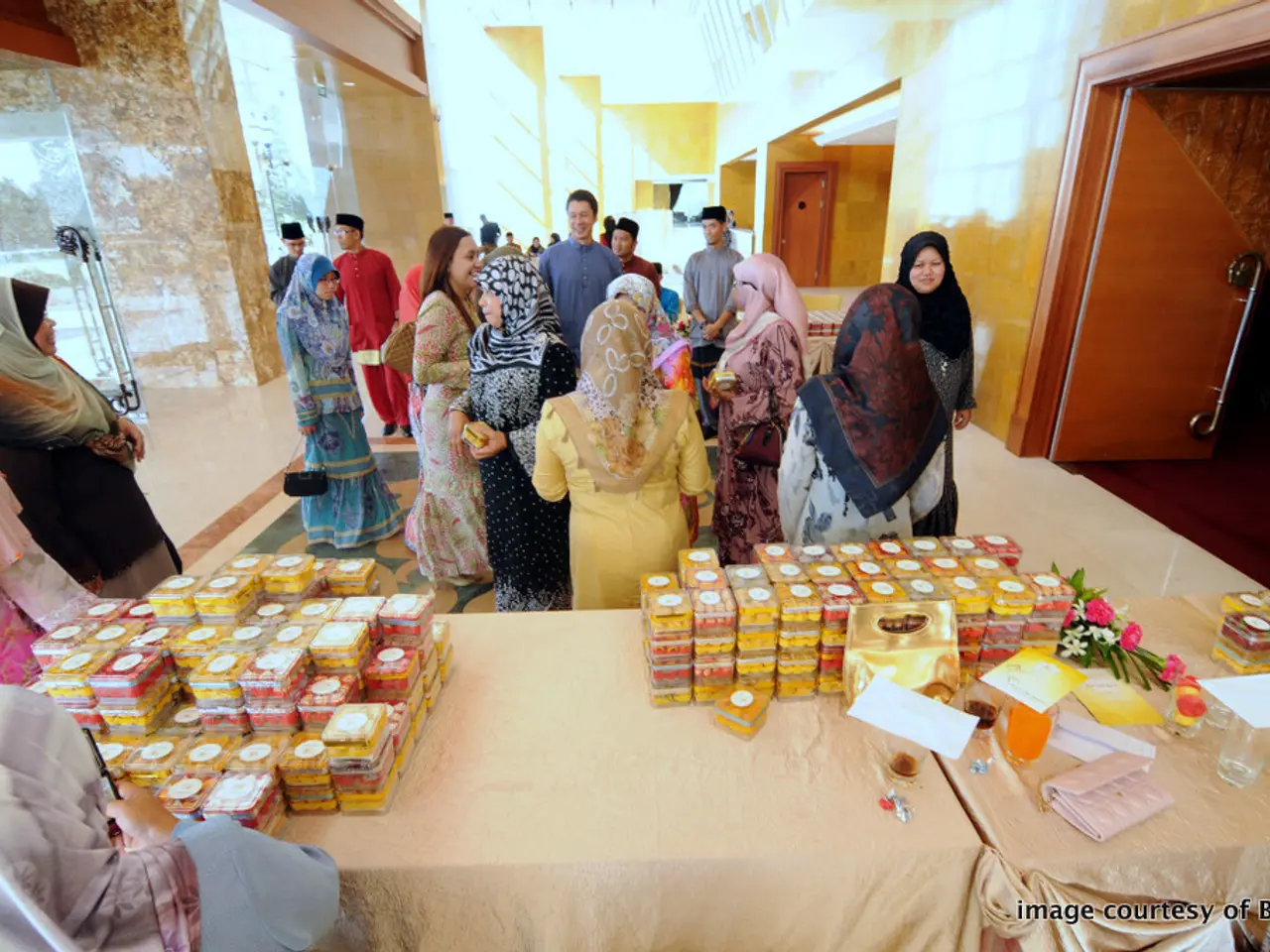Striking It Rich with Traditional Womanhood Living, Only for It to Ultimately Collapse
In a report by Bank of America, 94% of women believe they will be personally responsible for their finances at some point in their lives. However, the traditional role of a 'tradwife' – a woman who prioritizes domestic responsibilities over professional or financial participation – may limit their financial literacy and independence.
The tradwife movement, which promotes traditional gender roles, often encourages women to focus on home-making rather than financial autonomy. This choice, while framed as a voluntary embrace of different marital roles, can limit women's engagement with broader economic and civic roles.
Shari Rash, a financial advisor at GWA Wealth, often encounters women who leave their finances to their husbands. Rash advises asking oneself if one knows who their financial point of contact is, if they feel comfortable talking to them, and what accounts their partner has.
Estee Williams and Hannah Neeleman, TikTok creators with 1.3 million and 7 million followers respectively, share content about traditional homemaking and relying on a partner. Their content, while popular, may inadvertently contribute to the reduced financial awareness and independence among women who adopt the tradwife lifestyle.
Maya Corbic, a certified public accountant, aims to teach every child how to become financially independent adults. Corbic advises parents to be aware of the messages they're sending about finances and to consciously model healthy financial behaviors.
One narrator, a former tradwife, was a homemaker throughout her 12-year marriage. After her divorce, she became solely responsible for home maintenance, utilities, property tax, homeowners insurance, and homeowners association fees. However, she has recently gained financial confidence and self-esteem, taking steps such as opening an investment account and paying more attention to retirement accounts.
It's crucial for women to be financially aware and independent, especially for those in traditional gender roles. Rash urges individuals to immediately dig into their finances, discussing important topics such as individual or joint debt, savings, mortgage balance, monthly expenses, and emergency funds with their partners.
In a survey of 3,500 women, nearly half felt confident about their finances, but only 28% felt empowered to take action on them. It's important for women to take control of their financial future, regardless of their marital status or domestic responsibilities.
[1] Bank of America Report, 2021 [2] Corbic, M., (2020). Financial Independence for All: A Guide for Parents. [3] Rash, S., (2019). The Financial Cost of Traditional Gender Roles. [4] Williams, E., (2019). The Tradwife Movement: A Critical Analysis. [5] Neeleman, H., (2018). The Economic Impact of the Tradwife Movement.
- The report by Bank of America in 2021 states that 94% of women anticipate being personally responsible for their finances at some point in their lives.
- Shari Rash, a financial advisor at GWA Wealth, advises women to be aware of their financial situations, including knowing their financial point of contact, being comfortable discussing finances with them, and understanding the accounts their partner holds.
- Estee Williams and Hannah Neeleman, TikTok creators with large followings, share content about traditional homemaking and relying on partners, which may inadvertently hinder women's financial awareness and independence.
- Maya Corbic, a certified public accountant, encourages parents to model healthy financial behaviors and teach their children to become financially independent adults.
- A former tradwife, who was a homemaker for 12 years, became solely responsible for her household expenses after her divorce, but ultimately gained financial confidence and independence by taking action, such as opening an investment account and focusing on retirement accounts.
- Rash urges individuals to discuss important financial topics, such as debt, savings, mortgage balance, monthly expenses, and emergency funds, with their partners, emphasizing the importance of financial awareness and independence for women, especially those in traditional gender roles.




